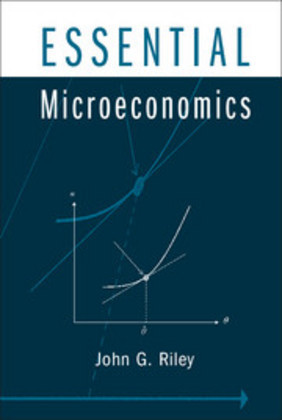Essential Microeconomics
| Verlag | Cambridge University Press |
| Auflage | 2012 |
| Seiten | 710 |
| Format | 18,3 x 26,0 x 4,0 cm |
| Gewicht | 1638 g |
| Artikeltyp | Englisches Buch |
| ISBN-10 | 0521827477 |
| EAN | 9780521827478 |
| Bestell-Nr | 52182747EA |
Essential Microeconomics is designed to help students deepen their understanding of the core theory of microeconomics.
Essential Microeconomics is designed to help students deepen their understanding of the core theory of microeconomics. Unlike other texts, this book focuses on the most important ideas and does not attempt to be encyclopedic. Two-thirds of the textbook focuses on price theory. As well as taking a new look at standard equilibrium theory, there is extensive examination of equilibrium under uncertainty, the capital asset pricing model, and arbitrage pricing theory. Choice over time is given extensive coverage and includes a basic introduction to control theory. The final third of the book, on game theory, provides a comprehensive introduction to models with asymmetric information. Topics such as auctions, signaling and mechanism design are made accessible to students who have a basic rather than a deep understanding of mathematics. Examples and diagrams are used to illustrate issues as well as formal derivations.
Inhaltsverzeichnis:
1. Prices and optimization; 2. Consumers; 3. Equilibrium and efficiency in an exchange economy; 4. Firms; 5. General equilibrium; 6. Dynamic optimization; 7. Uncertainty; 8. Equilibrium in financial markets; 9. Strategy; 10. Games with asymmetric information; 11. Incentive compatibility and mechanism design; 12. Auctions and public good; Appendix A. Mathematical foundations; Appendix B. Mappings of vectors; Appendix C. Optimization.
Rezension:
'A great economist and teacher has produced a great book! Essential Microeconomics presents the main contributions and tools of economic theory in an extremely clear and engaging way. This book excels in developing the main intuitions behind every result. A great resource for economics students.' Pedro Dal Bo, Brown University

